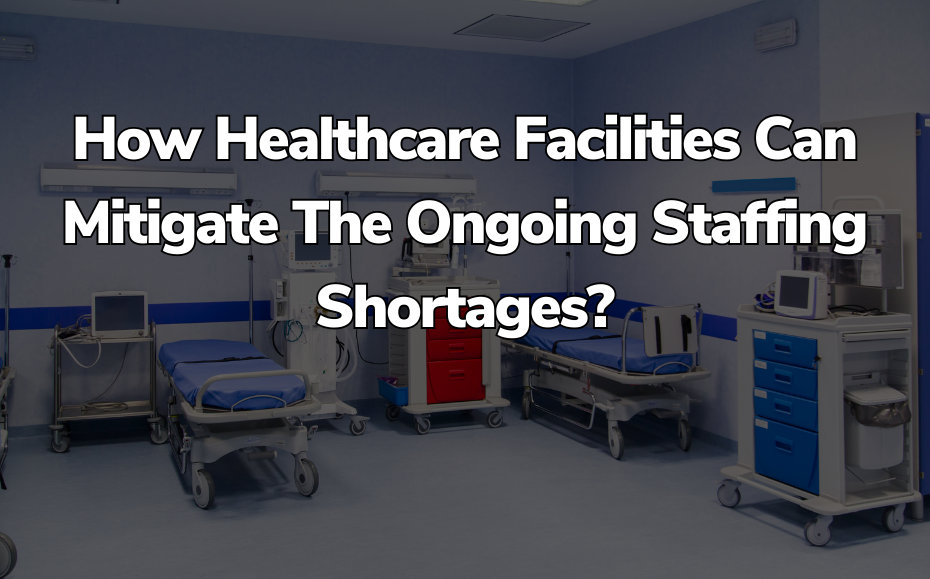Certified nursing assistant roles are seen as the perfect “entry-level” position. Compared to other HCP roles, the cost of education and the length of training is nowhere near as dramatic. Many aspiring Registered Nurses have become CNAs to build work experience and earn money while they further their education.
The exact process of becoming a CNA varies, from state to state. Each State Board of Nursing has their own different CNA certification process and set of requirements. To simplify things, this guide will go over how to become a CNA in your state and will point you to official State Board of Nursing resources, for further information.
How to Become a CNA
Step 1: Acquire educational requirements
While the process of becoming a CNA differs from state to state, there is a general outline that most State Boards of Nursing roughly follow. For instance: across the board, the CNA educational requirement is far less stringent, compared to other HCP roles. You need to possess at least a high school diploma or a General Education Degree (GED).
Step 2: Complete state-approved training
Once you have your requirements, you can apply for your post-secondary CNA education and training program of choice. Your hours will usually be split between classroom lectures, laboratory tests, and clinical rotations. How long your program lasts depends on the state.
You can find these courses in vocational schools, community colleges or even a number of healthcare institutions. You have to be sure that your institution of choice has been approved by the State Board of Nursing. If it is not, then you will not qualify for the certification exam and, by extension, CNA certification itself.
Step 3: Take the competency test
After you graduate from your CNA program, you will usually have to take a state competency test. You have to pass these tests if you want to obtain your certification. Most of these exams will be split between a written portion, an oral portion, and a practical skills test. You want to read up and study well before your exam is scheduled. Refer to your instructors for advice and further review material.
Step 4: Acquire CNA certification
Congratulations! You are now a state-certified nursing assistant. You can now apply for CNA jobs within the state, take up a CNA role with your current employer, or book temporary shifts with VitaWerks. Be sure to keep up to date with your continuing education requirements. Many states also require CNAs to work a minimum amount of clinical hours within their certification period, if they want their licensure to stay active.
What are the state-specific requirements?
As was mentioned earlier, the specific CNA certification process is determined by the State Board of Nursing. From the length of CNA lessons to the set of requirements, you want to learn the certification process of your home state before anything else. For your reference, we have gone over the specific CNA state requirements for these select territories.
At the bare minimum, you must be 16 years old (or older) and have a clear criminal record. From there, you have to complete a program that has been approved by the California State Board of Nursing. This exam will test your knowledge of direct and basic patient care, along with your practical skills.
In Connecticut, CNAs must first complete a program approved by the Connecticut State Board of Nursing. These training courses are a minimum of 100 hours long and will be carried out in collaboration with a Registered Nurse with at least two years of work experience. At least one of those years must have taken place in a licensed chronic/convalescent nursing home or rest home with a supervision setting.
Applicants must also complete 16 hours in the following fields: Resident’s Independence, Residents Rights, Infection Control, Safety and Emergency Procedures including the Heimlich Maneuver, and Communication/Interpersonal Skills. During your training program, you will learn 25 crucial clinical skills. In the clinical section of the exam, you will be tested on 5 of them, which are selected randomly.
RI-based CNAs have to pass a state-approved training program. They have to be at least 100 hours and include at least 20 hours of on-site, hands-on training.
In Maine, CNAs are expected to complete 180 hours of training, from a state-approved educational institution. This is the largest hour requirement listed in the article. These hours are split between 70 hours of supervised clinical rotations, 20 hours of laboratory training, and 90 hours of classroom instruction.
Once you have completed your training, you will receive a Certificate of Equivalent Training, proving that you have completed the necessary CNA training. Depending on the certificate, the Registry can determine whether or not you can immediately join the CNA registry, or must take further competency testing. You can only practice if you are listed as “active” in the state’s CNA registry.
NJ-based CNA applicants must fulfill a state-approved Nurse Aide in Long Term Care Facilities Training program. These classes consist of 90 hours, split between 40 clinical rotation hours and 50 classroom hours. In New Jersey, you can find training in one of the following institutions: a vocational school, community college, or a long-term care facility you are currently employed by.
Once you have completed your training, you must take and pass the Competency Evaluation Program (NATCEP). Students who have not completed a state-approved nursing program can still take the NATCEP, if they fall within the two exceptions:
- They are a graduate nurse, a nurse with a license in a foreign country, or a student with proof that they completed a course that covers the fundamentals of nursing.
- You can submit proof that you have completed a course covering the fundamentals of nursing within 12 months preceding the exam. This includes (but is not limited to):
- Training as a military nurse aide
- Proof of completion for the Long-Term Care Module of the Core Curriculum for Unlicensed Assistive Personnel along with the Core Curriculum for Unlicensed Assistive Personnel.
- Certification as a homemaker-health aide and successful completion of the Long-Term Care Module of the Core Curriculum for Unlicensed Assistive Personnel.
To qualify for PA’s Nurse Aide Test, first-time applicants must complete a state-approved CNA course within 24 months before their application. This list contains the approved training programs, as of July 2023. From there, you can fill out a registration form (with the supervision of your school, a facility member, and/or your employer) to place your name in the Nurse Aide Registry and begin your exam.
The test itself is a mix of 70 multiple-choice questions, 60 oral questions, and 10 reading comprehension questions. You will also be asked to fulfill a skills test, where you will demonstrate 5 randomly selected nurse aide skills.













